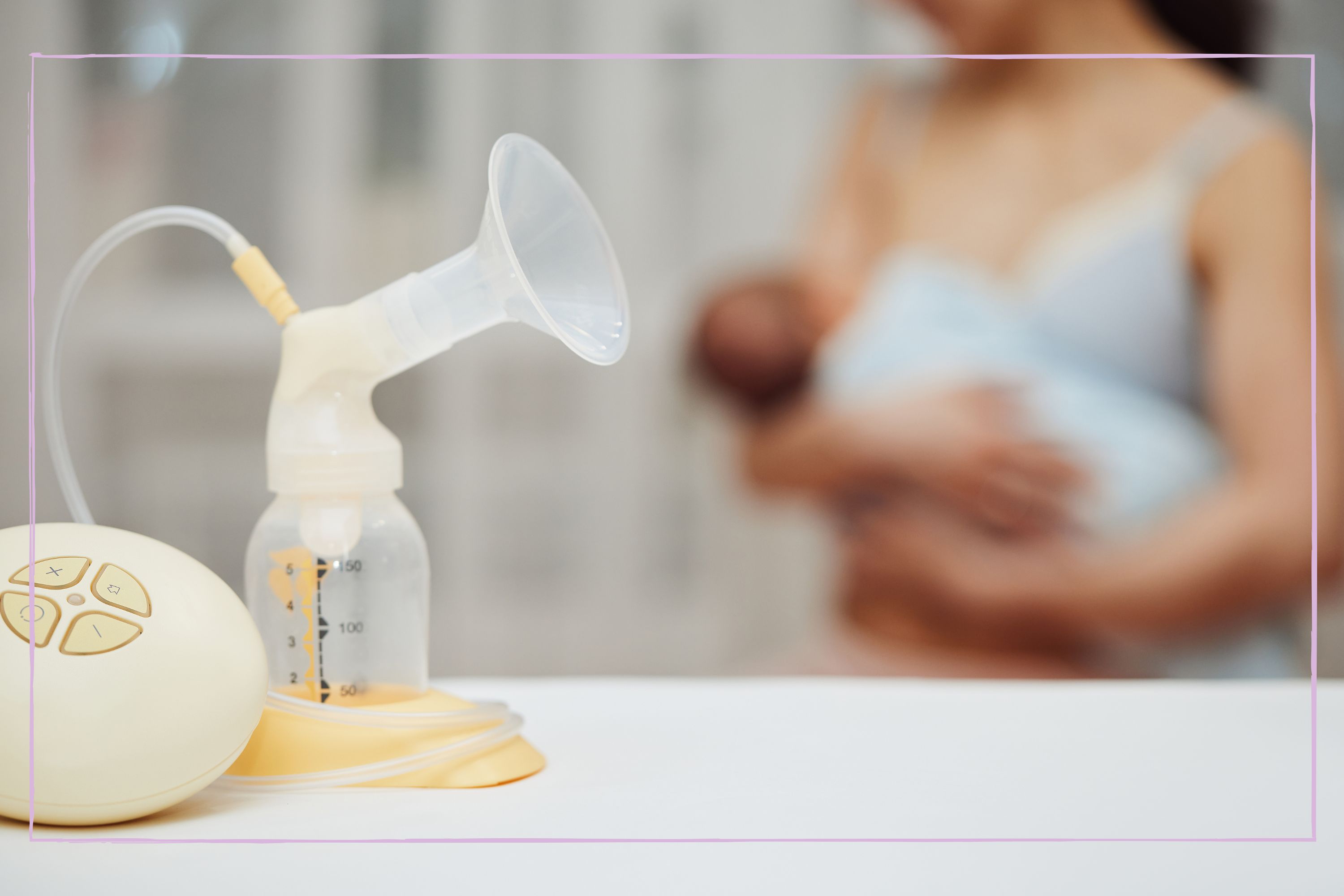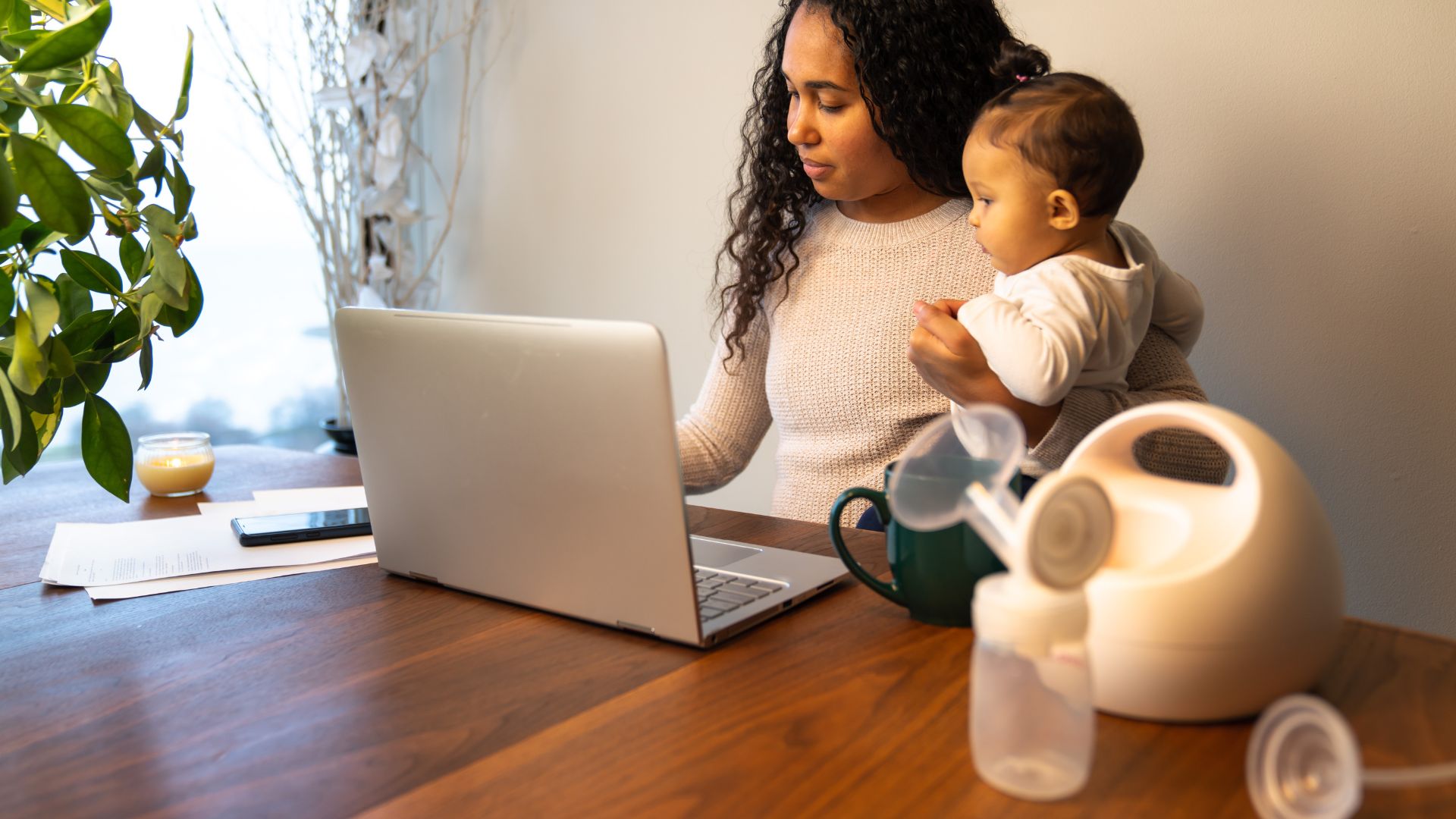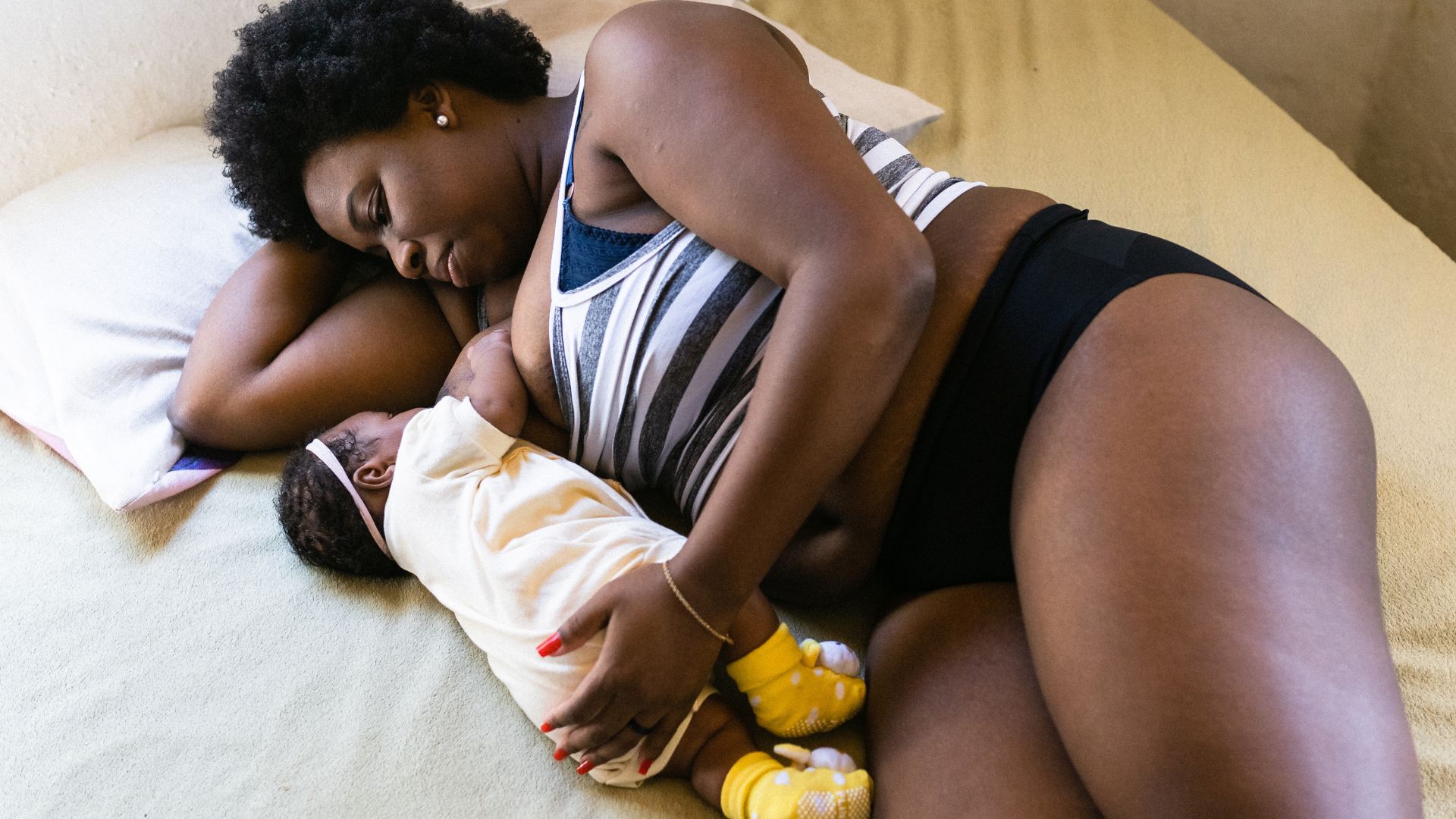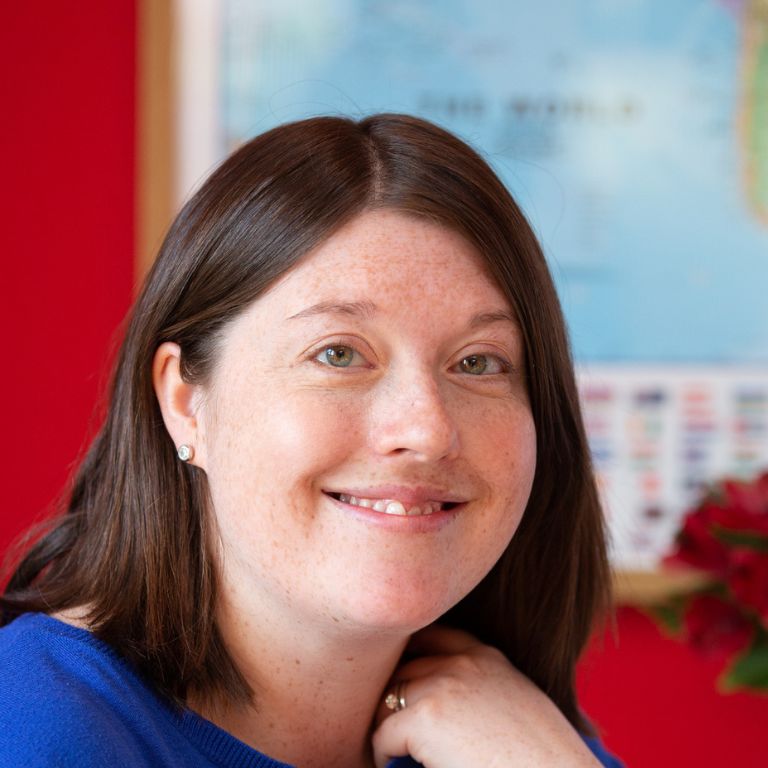
Whether breastfeeding, best pumping, or formula feeding fed is best, how you choose to feed your baby is ultimately your decision.
When a new baby arrives so does a tonne of information, and some parents may feel bombarded, we pick through with experts and share the advantages and disadvantages of breastfeeding and pumping milk, maybe you've picked one of the best breast pumps out there, in that case the advantages could be greater. Dr Shazia Malik is Consultant Obstetrician and Gynaecologist from The Portland Hospital, part of HCA Healthcare UK. She reminds us, “However a woman approaches feeding their baby, whether it be direct from their breast or through pumping, it is entirely up to them. All people are different and it’s about finding what works for you.”
Mom-of-twins, Dionne tells us; "I think all mums are trying their best and the decision on how to feed their baby is theirs, mastitis was a big fear of mine. It's like that funny meme says; 'breast fed or formula fed they all end up eating McDonald fries of the car floor.' My advice to mom friends is that they are the best mom for their baby, and any decision they make is the right one for them."
The American Academy of Pediatrics (AAP) recommends exclusive breastfeeding - from either breast or pump, for 6 months. Continuing even after solid foods are introduced, until at least 12 months old or until both mom and baby are both happy to stop, though with the help of great nursing pillows some moms choose to breastfeed up until four years of age.
Breastfeeding Vs Breast pumping: the pros and cons
The bottom line is that, while breastfeeding requires very little kit, pumping milk provides mums and families with greater freedom, and can sometimes be very helpful if nipples are sore and other adults can step in to offer a feed. You can do both if that works for you, but again this decision is no one's business but yours and your spouses. Here's all the information to help you choose.
Breastfeeding - the pros
From speed to health to keeping up milk supply, breastfeeding can bring lots of advantages. If breastfeeding is established, then there’s no denying the efficiency and time-saving advantages. Registered midwife at My Expert Midwife, Cathy Tabner, says, “No pump is as efficient as a baby feeding well. Some women prefer providing their pumped milk via a bottle but for speed and efficiency – baby does it better.”
We’ve often been told breastfeeding promotes immunity in babies. A study from the University of Oregon found that breastfed babies had higher levels of beneficial gut bacteria. Cathy adds, “Backwash spittle which the baby passes back from its mouth into the milk ducts via the nipple during feeds alters the immunity-promoting components of the milk such as antibodies to specifically target and destroy any pathogens detected in the baby.”
Parenting advice, hot topics, best buys and family finance tips delivered straight to your inbox.
The World Health Organization, also referred to as WHO, recommends breastfeeding until 2 years old or longer because the benefits continue that long. These agencies recommend starting as early as one hour after birth for the biggest benefits.
Breast pumping - the cons
Using a pump means parents and carers can share the load and sore breasts can heal – without damaging milk supply. Consultant Obstetrician and Gynaecologist from The Portland Hospital, part of HCA Healthcare, Dr Malik tells us, “Pumped milk allows a partner, relative or nanny to feed the baby breast milk whilst the mum takes a well-earned rest.”

According to the World Health Organisation, less than 50% of babies worldwide receive breastmilk. Pumping ensures your baby is consuming breastmilk. If latch is proving tricky, Dr Malik advocates the use of expressed milk: “If a baby is struggling to latch on to their mum’s breast or has trouble sucking the milk, it can be easier to feed the baby through a bottle, whilst still using breastmilk.” Midwife Cathy adds, “Pumping can relieve the pain from a tongue tie by allowing the baby to take breastmilk by bottle. Babies coping with a tongue tie may fall asleep exhausted from trying to extract milk [from the breast]. Pumped milk can save the day in these cases!”
Breastfeeding – the cons
There’s no getting around it: to establish breastfeeding, the onus is on mum and baby, its a big, weighty and often lonely mission to take on. This can lead to sleepless nights as babies settle in for cluster feeds, sore nipples and limited opportunity to be away from baby, if desired.
Growth spurts are exhausting as babies can cluster feed day and night. Cathy Tabner adds: “Breastfeeding a healthy, full-term baby from anatomically healthy breasts is an incredibly efficient process but no new mother has it easy – the burden of being responsible for feeding a small baby can be a real challenge.”

There can be a perceived pressure to breastfeed, which can leave women feeling low if their breastfeeding experience doesn’t match up to expectations. Continuing to breastfeed can be challenging for some women, especially if they don’t have the right support. Unicef UK found that eight out of ten mothers stopped feeding before they wanted to. Cathy agrees that, while natural, breastfeeding can be stressful. She says, “Maternal mood and the role stress can play in inhibiting the let-down of milk also needs to be considered.”
Breast pumping - the cons
While expressing can help to maintain milk supply and deliver freedom for mums, sterilising and prep can make it seem arduous.
Anna is a mum of two and found pumping milk took up time. “Breastfeeding is so portable, especially with your second baby. I breastfed on the bus, in soft play and while reading my eldest bedtime stories. I tried expressing too: I was attracted to the freedom and for my partner to feed and bond. Because it took me so long to express a tiny amount, I only did it a few times.”
Aside from the act of pumping, which generally takes longer than a breastfeed, it’s vital to keep breast pump equipment clean. The same goes for the bottles and teats. NHS guidance is clear and recommends sterilising until your child is 12 months old.
Charlotte Young is a lactation consultant and the founder of Milk Matters She says, “The reality of expressing is for most parents – there are of course exceptions – much more time consuming, difficult and unsustainable. You have to express the milk, which is a learnt art – very few women pick up a pump and magically remove good volumes of milk. We then have to feed baby by bottle which takes 20-40 mins. We then have to clean the pump and bottles. We effectively more than double the time it takes to feed a baby. Yes, it’s doable and we support parents – but it’s not a comparable approach.”
Your choice
Whichever method you choose, rest assured, you are doing a great job. Dr Malik reassures us: “Both breastfeeding and pumping are excellent ways to feed a baby breast milk.” And as Cathy Tabner reminds us, we are all individual and need choose what suits our own families. “You could say that the best method is what suits mum best.”
Whether you choose breastfeeding, directly from the source, or breast pumping, breast milk it's self provides optimal nutrition for babies. It has the right amount of nutrients, is easily digested, and is readily available.
Related features:
- Best breast pumps - tried and tested
- 31 breastfeeding tips - from moms and experts
- How to increase milk supply - the 7 expert -approved ways
Video of the Week:

Jo is a freelance journalist, writing for newspapers, magazines and websites such as Good Housekeeping, Grazia, Mother & Baby, The Daily Telegraph, Daily Express, Daily Mirror, Bella, Yours and Woman&Home. Jo started out in entertainment journalism and has scurried up plenty of red carpets and interviewed stars such as Joan Collins, Dawn French, Jane Fonda and Julie Walters. These days, she mainly covers health, parenting, lifestyle and consumer news but is always keen to vent in an opinion piece or dust off her schmoozing skills and interview a celeb. When not writing (and reading) Jo loves to get outside, wear out her two sons on a beach, drink good coffee and expand her baking repertoire.
